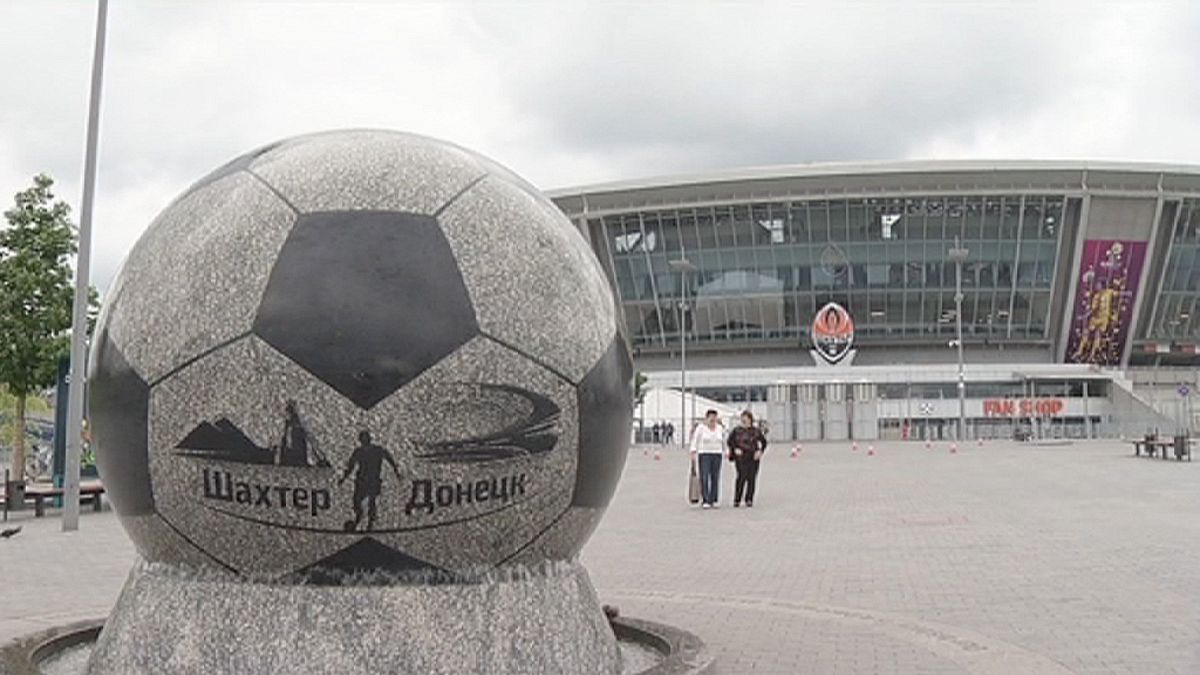Donetsk, one of the host cities of Euro 2012. An industrial city with a strong footballing heritage, which to this day remains at the cutting edge of the sport. Euronews went to the heart og Donbass arena, the home of the city’s great football team, FC Shaktar, and one of the stages for this years competiton.
Yuriy Taktashev, the department head of the sports facilities at FC Shakhtar spoke to euronews about the development of the club:
“The building in front of us is used by the main team of the football club. The construction started in 1998 and finished 12 months later in 1999. In that same year 5 football fields were built and the total area of our base increased to 43 hectares, or even a bit more.”
Shakhtar Donetsk won the UEFA cup in 2009 beating Germany’s Werder Bremen. In doing so it became the first and only Ukrainian team to win a top international tournament since independence.
Andrey Babeshko, the communications officer of the Arena said the team was given an advantage when they were taken over by an oligarch in the mid-nineties:
“Shakhtar’s success today can be traced all the way back to when Rinat Akhmetov took ownership of the club in 1996. A lot of people would agree that ‘Shakhtar’ is not only a leader and the number one club, but also it is well known in Europe.”
Donetsk’s football is deeply rooted in Donbass’ history of steel and coal; in fact Shakhtar means ‘miner’. The sport was first brought to the region by foreign workers, as Andrey Babeshko goes on to explain.:
“The first football teams in our region appeared at the beginning of the last century and their initiation was connected with the British workers of the Donetsk Metallurgy plant. It is commonly known that this plant was established by John Hughes, and his personnel – when his workers had some free time they played football and created the first teams. It is known that in 1911 the Yuzovka Sports Society was created, which consisted of a football club mainly fielding Englishmen.
“The radio was being installed into the mines and when ‘Shakhtar’ played and won or scored a goal, production in the mines increased several times. The men were listening to the radio reports of Shakhtar’s games while they worked. This solidarity of the team, the fans and the whole region is very symbolic, and even now it gives the team an opportunity to achieve all our present-day successes.”
Shakhtar is to this day an industrial town and the teams core support comes from miners and steel workers. Most of these industries – and the team – belong to the richest among Ukrainian billionaires, Rinat Ahmetov.
Igor Burakovski, Director of the Institute of Economic Studies and Political Advice, spoke the reasons for Ahmetov’s interest:
“The investments made by Mr Ahmetov in football can actually be explained from a number of points of view; firstly his personal addiction to football, secondly the necessity to behave as a real oligarch should behave in Ukraine; and finally to have a kind of positive public image, especially in the local area where the majority of his enterprises are located”.
The Euro 2012 football tournament kicks off in Poland and Ukraine on June the 8th, England will take on France at the Donbass arena on June 11th.
